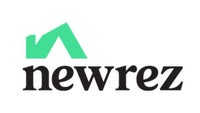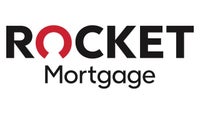Best VA loan lenders in 2025

As an eligible veteran, service member or military spouse, buying a home with a VA loan is one of the most powerful benefits available to you. Although the Veterans Administration mandates some requirements for these loans, not all VA mortgage lenders offer the same rates, service levels or borrower experience.
The best VA home loan lenders combine competitive pricing with flexible underwriting and strong customer support. Some specialize in military borrowers, while others also offer conventional, FHA or jumbo loans. Knowing which approach fits your needs can help you find the best lenders for VA home loans in today’s market.
Best VA loan lenders
| Lender | Credit score minimum | Down payment minimum | Bankrate Score |
|---|---|---|---|
| Veterans United Home Loans | 620 for conventional loans and VA loans | 3% for conventional loans; 3.5% for FHA loans; none for VA loans or USDA loans | 4.8 |
| Newrez | 580 for conventional loans and FHA loans, 600 for VA loans; 660 for jumbo loans | 1% for conventional loans; 3.5% for FHA loans; none for VA loans | 3.8 |
| Pennymac | 620 for conventional loans and VA loans; 580 for FHA loans; 620 for VA loans | 3% for conventional loans; 3.5% for FHA loans; none for VA loans or USDA loans | 4.8 |
| Freedom Mortgage | 620 for conventional loans; 550 for FHA loans; 550 for VA loans; 620 for USDA loans | 5% for conventional loans; 3.5% for FHA loans; none for VA loans or USDA loans | 3.9 |
| Rocket Mortgage | 620 for conventional loans; 680 for jumbo loans; 580 for FHA loans and VA loans | 3% for conventional loans; 10-15% for jumbo loans; 3.5% for FHA loans; none for VA loans | 4.6 |

Veterans United Home Loans
-
-
- Nationwide availability: All U.S. states
- Loan products: Conventional, jumbo, FHA, VA, USDA
- Credit requirements: 620 for conventional loans and VA loans
- Down payment requirements: 3% for conventional loans; 3.5% for FHA loans; none for VA loans or USDA loans
-
-
Pros
- Specializes in VA loans
- 24/7 customer service over the phone
- Lower rates than the national average
Cons
- No HELOCs or home equity loans
- Limited number of branches
- Lack of information on non-VA loans
-
Veterans United Home Loans scores well for affordability, availability and borrower experience. It has one of the highest customer satisfaction ratings among VA mortgage lenders and consistently ranks as a top choice for military homebuyers seeking competitive terms and dedicated support. The lender was also the largest VA loan provider in 2025, originating more VA loans than any other lender.

Newrez
-
- Nationwide availability: All U.S. states
- Loan products: Conventional, jumbo, FHA, VA, refinancing
- Credit requirements: 580 for conventional loans, FHA loans and VA loans; 660 for jumbo loans
- Down payment requirements: 1% for conventional loans; 3.5% for FHA loans; none for VA loans
-
Pros
- Can close loans in as few as 10 days and offers a $5,000 close-on-time guarantee to borrowers
- Up to $5,000 payout for closing delays
- Purchase Perks saves $1,000 on closing costs
Cons
- Current mortgage rates not listed online
- Below-average customer satisfaction scores
-
Newrez scores well for affordability and availability. The lender offers the gamut of government-backed loan options, including VA loans with a lower minimum credit score requirement of 580. It’s also one of the top VA lenders in the U.S. based on loan volume.

Pennymac
-
- Nationwide availability: All U.S. states
- Loan products: Conventional, jumbo, FHA, VA, USDA, refinancing
- Credit requirements: 620 for conventional loans and VA loans; 580 for FHA loans; 620 for VA loans
- Down payment requirements: 3% for conventional loans; 3.5% for FHA loans; none for VA loans or USDA loans
-
Pros
- Large lender with national presence
- $1,000 off closing costs if preapproved (not applicable to jumbo loans or refinancing) and a rate reduction of 1% for 12 months
- Receive $2,000 if you refinance your Pennymac loan within 3 years
- Receive up to $9,500 if you use a partnered agent
Cons
- No branch locations
- Below-average customer service ranking
-
Pennymac scores well for availability and borrower experience and works with borrowers on a range of mortgage needs, including VA loans. (In fact, like the other entries on this list, it’s one of the largest VA lenders in the country by volume.) In addition, the lender offers some savings opportunities for eligible borrowers.

Freedom Mortgage
-
- Nationwide availability: All U.S. states
- Loan products: Conventional, jumbo, FHA, VA, USDA, refinancing
- Credit requirements: 620 for conventional loans; 550 for FHA loans; 550 for VA loans; 620 for USDA loans
- Down payment requirements: 5% for conventional loans; 3.5% for FHA loans; none for VA loans or USDA loans
-
Pros
- Borrower rewards including discounts on home-related products and services
- Offers a $1,000 close-on-time guarantee
- Lower-than-average minimum credit scores for VA and FHA loans
Cons
- Limited information about loan costs online
- No home equity loans
- Poor marks for customer service
-
Freedom Mortgage scores well for availability and has specialized experience in FHA and VA loans. In business since 1990, the lender operates nationwide as well as in most U.S. territories.

Rocket Mortgage
-
- Nationwide availability: All U.S. states
- Loan products: Conventional, jumbo, FHA, VA, refinancing
- Credit requirements: 620 for conventional loans; 680 for jumbo loans; 580 for FHA loans and VA loans
- Down payment requirements: 3% for conventional loans; 10-15% for jumbo loans; 3.5% for FHA loans; none for VA loans
-
Pros
- Scores above average for customer service
- Contact options include chat and screen-sharing
- Up to $10,000 rebate for buying and selling through affiliate Rocket Homes
- ONE+ program features 1% down payments for eligible homebuyers
Cons
- Rates often higher than average
- No branch locations
- No USDA loans
-
Rocket Mortgage scores well for availability and borrower experience. A pioneer in online lending, it has grown to become the biggest mortgage lender — and one of the largest VA lenders – in the U.S.
Who are the largest VA mortgage lenders in the U.S.?
For comparison to our best VA lenders list, here are the 10 largest VA mortgage lenders based on loans originated in fiscal year 2025, as reported by the U.S. Department of Veterans Affairs:
- Veterans United Home Loans
- United Wholesale Mortgage
- Freedom Mortgage
- Rocket Mortgage
- Navy Federal Credit Union
- Pennymac
- Village Capital & Investment
- DHI Mortgage
- Newrez
- CrossCountry Mortgage
How to find the best VA mortgage lender for you
- Make sure you’re eligible. You’ll need to obtain a certificate of eligibility (COE) and meet other requirements.
- Determine what type of VA loan you need. Some lenders provide the full range of VA loans, from home purchase to construction to renovation, while others limit their VA options.
- Apply and compare offers. Apply for preapproval with at least three VA lenders to compare their rates and fees. Check out current VA loan purchase rates and VA refinance rates.
- Read reviews and compare lenders. Check out lender reviews on Bankrate and read testimonials from past customers.
FAQ about VA loans
Why we ask for feedback Your feedback helps us improve our content and services. It takes less than a minute to complete.
Your responses are anonymous and will only be used for improving our website.





